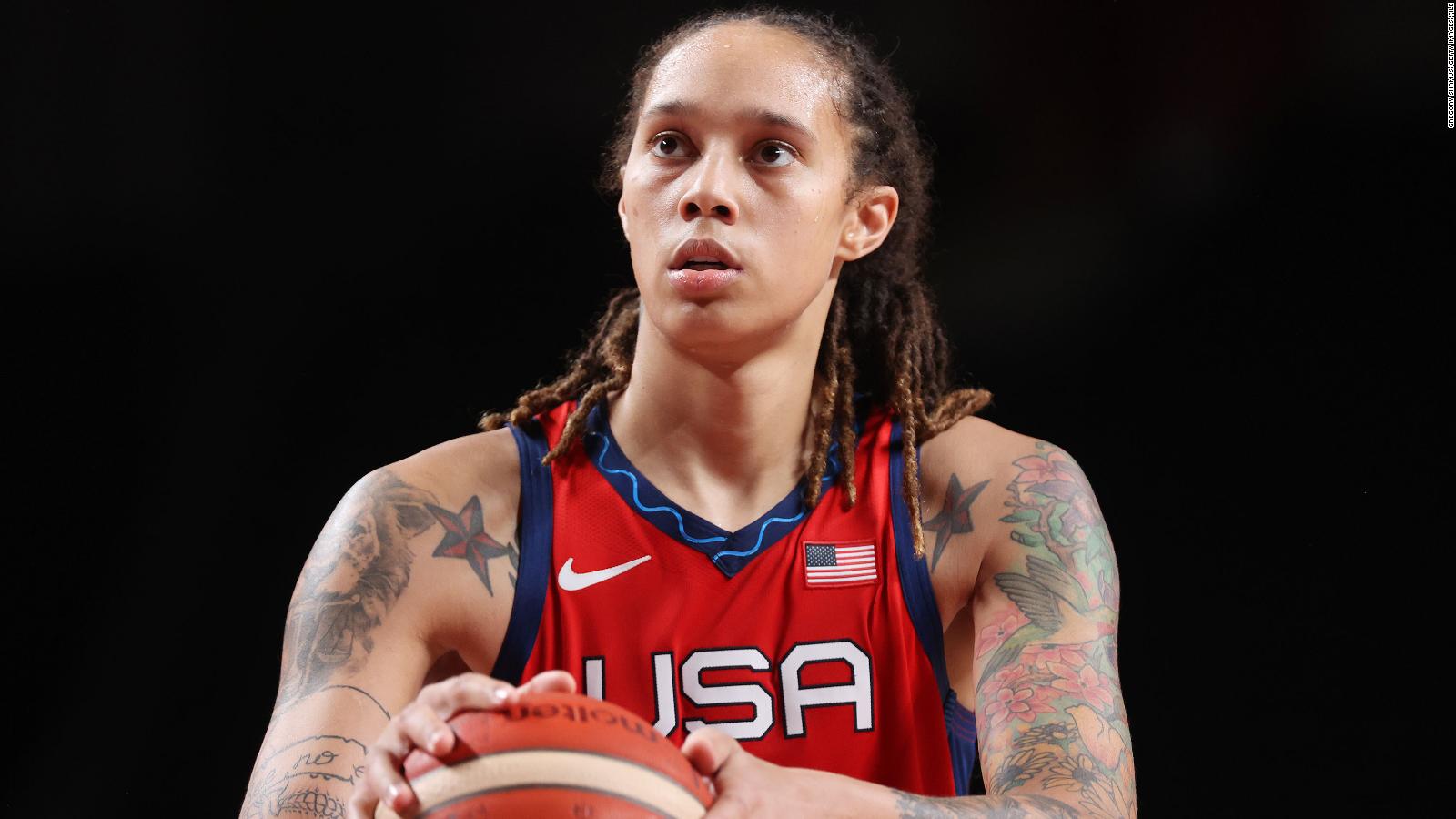Understanding Griner's Identity: Is Griner Transgender?
In the world of sports, athletes often become symbols of resilience and courage, representing not just their teams but also larger social movements. One such figure is Brittney Griner, a prominent basketball player whose identity has sparked numerous discussions regarding gender and sexuality. As more people engage with her story, a question arises: is Griner transgender? This inquiry not only seeks to understand her identity but also reflects the evolving landscape of gender identities in contemporary society.
As a professional athlete, Griner has achieved remarkable success, becoming a two-time Olympic gold medalist and a WNBA champion. However, her journey extends beyond the basketball court. The conversation surrounding Griner’s identity intertwines with broader discussions about acceptance, representation, and the rights of transgender individuals. Understanding whether Griner identifies as transgender requires delving deeper into her life experiences, her public statements, and the societal implications of her identity.
The question of whether Griner is transgender is not merely a matter of curiosity; it has the potential to influence public perceptions of transgender athletes and the sports community as a whole. As we explore this topic, we aim to provide clarity and insight into Griner’s life, her identity, and the significance of these discussions in the current social climate.
- Exploring The Lives Of Bill Paxtons Kids A Legacy Beyond The Screen
- A Journey Through Aubreigh Wyatts Note To Parents
Who is Brittney Griner?
Brittney Griner is a renowned professional basketball player known for her exceptional skills on the court. Born on October 18, 1990, in Houston, Texas, she has made a significant impact in the world of sports. Griner played college basketball at Baylor University, where she gained national attention for her towering height, athleticism, and scoring ability. Following her successful college career, she was selected as the first overall pick in the 2013 WNBA Draft by the Phoenix Mercury.
Key Achievements in Griner's Career
- Two-time Olympic gold medalist (2016, 2021)
- WNBA champion (2014)
- Multiple-time WNBA All-Star
- Named WNBA Finals MVP (2014)
Personal Details and Bio Data
| Attribute | Details |
|---|---|
| Name | Brittney Griner |
| Date of Birth | October 18, 1990 |
| Height | 6 ft 9 in (2.06 m) |
| Position | Center |
| College | Baylor University |
| WNBA Team | Phoenix Mercury |
Is Griner Transgender? What is Her Gender Identity?
To answer the question, “is Griner transgender?” we first need to explore her gender identity. Griner has publicly identified as a lesbian, and she has spoken about her experiences as an LGBTQ+ athlete. While she has not identified as transgender, her openness about her sexuality has played a crucial role in advocating for LGBTQ+ rights within the sports community.
What Has Griner Said About Her Identity?
Throughout her career, Griner has been candid about her journey and the challenges she has faced as a queer woman in professional sports. She has used her platform to raise awareness about discrimination and the importance of acceptance. Griner's willingness to discuss her identity has inspired many, and she has become a role model for young athletes, particularly those who identify as LGBTQ+.
- Unraveling The Journey When Did Jude Bellingham Make His Debut
- Unraveling The Future Mark Bellingham And His Potential Move To Liverpool
How Does Griner’s Identity Impact LGBTQ+ Representation in Sports?
The visibility of athletes like Griner is vital for the LGBTQ+ community, as it helps to challenge stereotypes and encourage acceptance in spaces that have traditionally been unwelcoming. Griner's presence in the WNBA has opened doors for other LGBTQ+ athletes, fostering an environment where they can be authentic and celebrated for who they are.
What Are the Societal Implications of Griner's Identity?
Griner's identity and her openness about being a lesbian have broader societal implications. They challenge the norms of masculinity and femininity in sports and encourage a dialogue about gender and sexuality. As more athletes come out and share their stories, the sports community is gradually moving toward a more inclusive environment.
How Can We Support LGBTQ+ Athletes Like Griner?
Supporting LGBTQ+ athletes goes beyond simply acknowledging their existence; it involves actively advocating for their rights and well-being. Here are some ways to support LGBTQ+ athletes:
- Promote inclusivity in sports organizations
- Educate others about LGBTQ+ issues in athletics
- Challenge discriminatory practices and policies
- Support LGBTQ+ organizations and initiatives
What Can We Learn from Griner's Journey?
Griner's journey teaches us about the importance of authenticity and acceptance. It highlights the need for continued advocacy for LGBTQ+ rights in all areas of life, including sports. Her story serves as a reminder that everyone deserves the right to express their true selves without fear of judgment or discrimination.
Conclusion: Is Griner Transgender or Not?
In conclusion, the question “is Griner transgender?” is answered by understanding her identity as a lesbian and her role as an advocate for LGBTQ+ rights. While she does not identify as transgender, her journey is significant in the conversation surrounding gender and sexuality in sports. Griner's courage to be herself has inspired many and paved the way for a more inclusive future in athletics. As society continues to evolve, the importance of representation and acceptance in sports remains paramount, and athletes like Brittney Griner will undoubtedly play a crucial role in shaping this narrative.
Article Recommendations
- Aubreigh Wyatts Heartfelt Goodbye Letter A Journey Of Love And Resilience
- Unraveling The Mystery Where Is Aubreigh Wyatts Dad



Detail Author:
- Name : Johnathan Sipes
- Username : eloy02
- Email : mariam.adams@bernier.biz
- Birthdate : 1992-01-23
- Address : 932 Kutch Harbor Shieldschester, VA 70749
- Phone : 1-941-314-5729
- Company : Hettinger, Jacobs and Yundt
- Job : Order Filler OR Stock Clerk
- Bio : Et cum quidem magni. Laudantium dolores sed fuga.
Socials
twitter:
- url : https://twitter.com/hintzs
- username : hintzs
- bio : Est quia soluta veritatis velit. Dolorum repudiandae est maiores nemo sequi dolor iste. Dolor quia facilis similique dolorem.
- followers : 3304
- following : 2001
tiktok:
- url : https://tiktok.com/@hintz2003
- username : hintz2003
- bio : Quae ea sint ipsum deserunt. Omnis aut omnis ipsa totam.
- followers : 4203
- following : 2634
facebook:
- url : https://facebook.com/simeon_hintz
- username : simeon_hintz
- bio : Sequi expedita et ut tempora. Et quia numquam natus voluptatem tenetur quia.
- followers : 2548
- following : 563
linkedin:
- url : https://linkedin.com/in/shintz
- username : shintz
- bio : Et dolorem ab quis commodi.
- followers : 3214
- following : 227
instagram:
- url : https://instagram.com/hintz1978
- username : hintz1978
- bio : Beatae laborum fugiat voluptatem facere et. Nulla aliquid aut est commodi sed quia.
- followers : 5134
- following : 1813